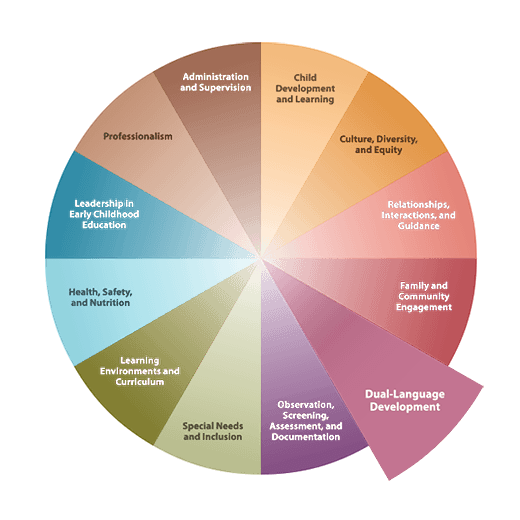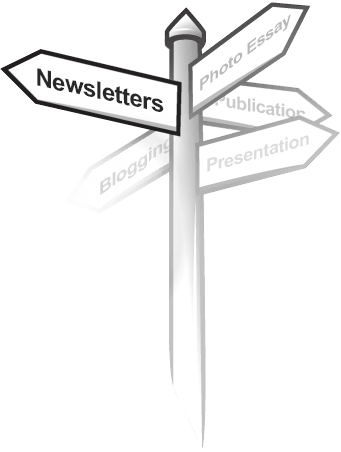Dual-language development refers to the process by which a child acquires his or her home language and English. Dual-language learners may speak their home language and learn English as they enter preschool or elementary school ("sequential bilinguals"), or they may develop both English and their home language at the same time and at comparable levels at home and in early education settings ("simultaneous" bilinguals) [Garcia and Jensen 2009; CDE 2008b]. This competency area addresses the knowledge and skills that early childhood educators need in order to support the optimal development and learning of young dual-language learners and the relatively small number of young children who learn more than two languages. It is based on current research and knowledge about dual-language acquisition as well as an understanding that dual-language learners represent a variety of social, cultural, and linguistic perspectives, diverse characteristics, and experiences. Key concepts include acknowledgment of young children's ability to develop proficiency in both English and the home language, and recognition of the home language as the vehicle by which children are socialized into their families and communities (CDE 2009a).
Download the California ECE Competencies
This document requires the Adobe Acrobat Reader. Download the plug-in.

Framing questions identify some of the major themes in this competency. They provide you with a starting point. As you explore this competency, add your own framing questions for issues you want to further examine.
Keep these dispositions in mind as you explore the Framing Questions. If you mindfully adopt these dispositions, you will realize the Desired Outcomes for Practitioners and for Children.
The CompSAT Keys to Reflection and Inquiry offer you a protocol to use in whatever setting you work as an early childhood educator. Learn how you can integrate the six Keys into your work. Select one of the Keys below to practice reflecting with questions related to the competency area of Dual-Language Development.

Choose from one of the Keys below to view additional information related to this Competency!

Newsletters can provide a great tool for documenting your work. They can be very polished, as in the one provided here, or they can be simple and unadorned. You can find templates online to fit any mood or experience, or you can just browse for ideas. They make a great permanent record of program activities — and when used for your portfolio — they can give parents and colleagues insight into your thinking, learning, and growth. Remember, portfolios always include your reflections!
